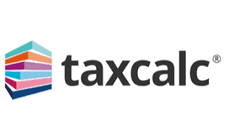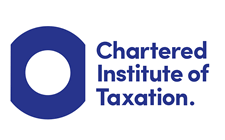Chancellor set to tone down non-dom reform?
Domicile will no longer be a relevant factor in an individual’s tax status from April 2025. However, reports are suggesting that the Chancellor is going to soften the blow for those affected. What’s going on?

Domicile is a general, not a tax, law principle. Nonetheless it has long been an important factor in determining the extent to which worldwide income, gains and assets are subject to various taxes. This will change from 2025/26 and later years with a move to a residence-based system, which can be determined year-by-year. This move was first announced by the last government, but the incumbent government confirmed it would be continuing with the reform, tightening up what it said were loopholes in the pre-existing plans. The announcements were met with dismay by many in the financial sector, with warnings that the changes would disincentivise wealthy people from moving to, and investing in, the UK and perhaps lead to “capital flight”.
Yesterday, it emerged that the Chancellor had apparently conceded that the reforms were having more of an impact than expected and was planning to table an amendment to the draft legislation in response. We don’t know the full details yet, but the amendment will be to the temporary repatriation facility. As currently drafted, this will allow individuals who were previously taxed on the remittance basis to designate amounts derived from pre-6 April 2025 foreign income and gains and to pay a reduced tax rate. This facility will be available for three tax years; 2025/26, 2026/27 and 2027/28. A tax rate of 12% will apply for 2025/26 and 2026/27, rising to 15% for 2027/28. The most likely scenario is that this period will be extended, and/or the applicable rates reduced.
The Chancellor’s announcement comes on the heels of a report by global analytics firm New World Wealth and investment migration advisers Henley & Partners which found that 10,000 millionaires had left the country in 2024, an increase of 157% compared with the previous year.
Related Topics
-
When will you have to register your new business for MTD?
The timetable for mandatory use of Making Tax Digital for Income Tax Self-Assessment (MTD ITSA) by existing businesses is well established. But when must you use MTD ITSA if you start a new business or create a new income stream?
-
EU law change for virtual events: how will it affect you?
Your business organises live events online, charging delegates a fee to attend. What are the rules about charging VAT and what changes took place on 1 January 2025 that will affect you if EU delegates attend your sessions?
-
Forthcoming changes to statutory sick pay
According to statistics from the Office for National Statistics (ONS), the rate of sickness absence fell to an average of 4.4 working days lost per worker in 2024, down from 4.9 days in 2023. Whilst this is good news for employers, forthcoming changes to statutory sick pay (SSP) are less good news. What do you need to know?









 This website uses both its own and third-party cookies to analyze our services and navigation on our website in order to improve its contents (analytical purposes: measure visits and sources of web traffic). The legal basis is the consent of the user, except in the case of basic cookies, which are essential to navigate this website.
This website uses both its own and third-party cookies to analyze our services and navigation on our website in order to improve its contents (analytical purposes: measure visits and sources of web traffic). The legal basis is the consent of the user, except in the case of basic cookies, which are essential to navigate this website.